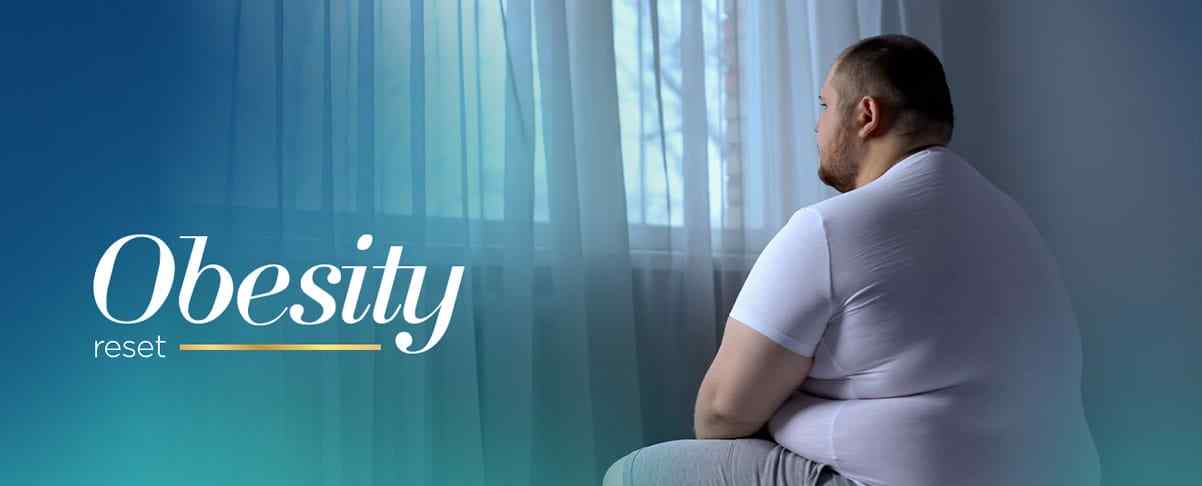The Role of Oxytocin in Hypothalamic Obesity and Hyperphagia

Obesity has rapidly grown to be one of the most concerning health threats to people in the United States. More than one-third of the American population is considered overweight and another third are considered obese. While obesity may seem like a problem simple to solve with diet control and exercise, the solution is not that simple for people who suffer from hypothalamic obesity.
The hypothalamus is one of the smallest parts of the brain. Yet, this part of your brain has significant responsibilities, including maintaining a state of dietary homeostasis through appetite and food-energy use regulation. If something is wrong with this region of the brain, an individual can have significant problems with overeating and weight control. They may feel extremely hungry, be able to consume far more than average, and possibly even see problems losing weight even when they don't eat a great deal.
To date, the typical treatments for people with hypothalamic obesity have offered little help, but a promising peptide, oxytocin, may offer more than expected. Let's take a closer look at hypothalamic obesity, hyperphagia as a symptom, and how oxytocin nasal spray may be something that could help.
So, does the hypothalamus control weight? Or, can hypothalamus cause weight gain? The answer to both of these questions is yes, but with a few caveats. The hypothalamus is meant to specifically regulate bodyweight through hormonal signals that balance things like how much food your body craves with how much energy your body utilizes.
Even though this part of your brain has a number of jobs to do, such as regulating your body temperature and regulating responses to emotional stimuli, the hypothalamus also plays a huge role in weight control by preventing overeating and making sure your body uses energy consumed from your food. Therefore, the hypothalamus does play a role in obesity and could be seen as part of your brain that directly contributes to your weight. If something is wrong and this part of your brain does not function as it should, you could easily have problems with weight control.
While the hypothalamus does have a direct link to obesity, the hypothalamus alone may not always be to blame if someone is overeating or has problems with obesity. Obesity is a highly complex condition that can have a number of contributing factors that are both psychological and physiological in nature. The total instances of hypothalamic obesity are not actually known, but most medical professionals agree that the problem may be more prevalent than we all know.
Simply stated, hypothalamic obesity is when there is some dysfunction in the hypothalamus that causes an individual to be obese. Typically, people with hypothalamic obesity will have some form of physical damage or some kind of inborn defect to the hypothalamus of their brain.
Some individuals may have hypothalamic obesity due to a benign tumor on the hypothalamus, brain malformation, or even trauma to their brain after an accident. Certain types of brain surgery may affect the function of the hypothalamus as well, and this issue is commonly seen in patients who have undergone brain surgery as children.
Hypothalamic Obesity Symptoms
The unique symptoms of hypothalamic obesity may not be the same for every individual. Since this region of the brain is directly linking parts of the endocrine system and the nervous system, a number of vital bodily functions can be affected. Some of the most typical symptoms of the condition include:
-
Excessive weight gain
-
Rapid weight gain
-
Low metabolic rate
-
Excessive appetite or extreme hunger (hyperphagia)
-
Inability to feel full
Other symptoms that may not be as prevalent include fatigue and low levels of physical activity because of lacking energy.
Traditional Hypothalamic Obesity Treatment
Unfortunately, there is no known cure for hypothalamic obesity. The condition is most often diagnosed according to a combination of the patient's symptoms and physical examination. Treatment can involve several methods, including medications to control or regulate hunger, nutritional or lifestyle coaching, and possibly even some form of gastric surgery to control how much food the individual can physically consume.
Medications to help with the condition can include certain medications like metformin and octreotide, which are associated with type 2 diabetes treatment, and stimulants or hormone-based treatments. The general goal with all forms of treatment for hypothalamic obesity is to control overeating and weight, both of which can have detrimental health effects on the diagnosed individual. Unfortunately, most medications prescribed for this metabolic condition offer minimal results at best, and some can have concerning side effects to contend with.
What happens in hypothalamic obesity is the individual usually has such a drive to eat that the over-consumption of food leads to excessive weight gain. This excessive appetite and grossly overexaggerated appetite is known as hyperphagia. Some individuals will have such an issue with hyperphagia that they can eat large quantities of food in one sitting or in a relatively short time frame.
In the most extreme cases, hyperphagia leads to abnormal food-seeking, such as stealing or hiding food and having constant, disruptive thoughts about food. A few other conditions not necessarily related to the hypothalamus can have hyperphagia as a symptom, such as Prader-Willi syndrome.
Oxytocin, which is often referred to as the "love hormone," is produced by the hypothalamus and then distributed through the pituitary gland as the hypothalamus triggers those actions. Even though oxytocin is most often related to things like social interaction and human bonding or sexual biology, this hormone does seem to play a role in feelings of hunger as well.
Oxytocin receptors can be found in numerous points throughout the body, including in the gastrointestinal tract. Researchers have established that oxytocin signaling may play a large role in how much food a person consumes. Individuals with hypothalamic damage or dysfunction may have altered oxytocin production or signaling. In animal studies, rodents with reduced hypothalamic oxytocin levels eat more food. Likewise, studies have shown that the use of oxytocin antagonists (blockers) in animal studies seems to cause weight gain.
Currently, there are no FDA-approved treatments available for hypothalamic obesity. However, some recent research is showing oxytocin holds promise for the treatment of hypothalamic obesity and hyperphagia. Because individuals with this rare metabolic disorder may have altered natural oxytocin signaling or oxytocin levels, supplementing with oxytocin nasal spray may be a viable option.
Some research has suggested that long-term oxytocin administration may offer:
-
Reduced food intake
-
Enhanced utilization of energy
-
Glucose stabilization improvement
-
Increased fat oxidation
-
Improved insulin sensitivity
In February 2018, the results of research efforts led by a group of scientists were published in The Journal of Clinical Endocrinology & Metabolism. The study involved a 13-year-old male subject who had been diagnosed with hypothalamic obesity and hyperphagia after craniopharyngioma surgery. He was parent-observed while being supplied naltrexone and oxytocin nasal spray from Harbor Compounding Pharmacy. The 38 weeks of treatment led to significant weight loss and fewer symptoms of hyperphagia.
Numerous studies have looked at oxytocin as an option to help people lose weight, even though those studies were not always directly associated with test subjects with hypothalamic obesity or hyperphagia. One randomized controlled clinical trial on oxytocin for hypothalamic obesity in children is also currently underway and set to conclude in 2021.
Even though the research into oxytocin nasal spray and how it could help people with hypothalamic obesity is just getting started, the initial findings are exciting for sure. At Harbor Compounding Pharmacy, we are always excited to learn about the potential for oxytocin, a peptide, to help people with hard-to-treat conditions.
We recently supported efforts pulled together by medical specialists in oxytocin to host an educational series regarding hypothalamic obesity and the role oxytocin could play. It is our hope that more findings will soon be brought to light concerning how oxytocin could help people with hypothalamic issues take charge of weight control. To find out more about oxytocin nasal spray available through our pharmacy, reach out to one of our representatives to get more information.



